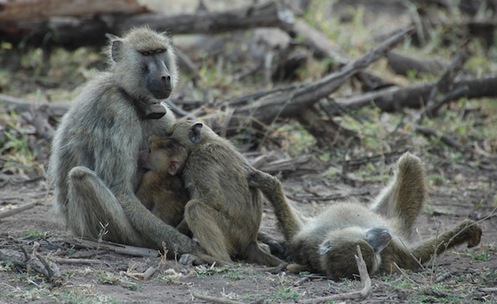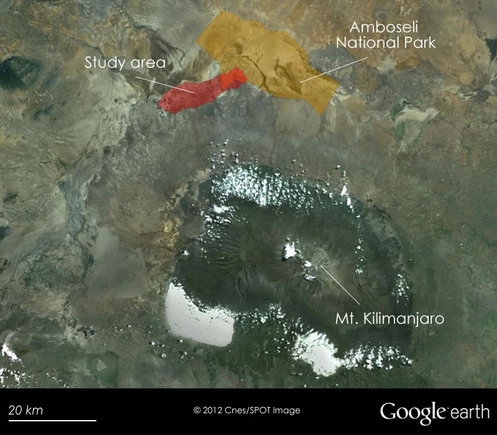
The Amboseli Baboon Project is one of the longest-running studies of wild primates in the world. Focused on the savannah baboon, Papio cynocephalus, ABRP is located in the Amboseli ecosystem of East Africa, north of Mt. Kilimanjaro. We track hundreds of known individuals in several social groups over the course of their entire lives. We currently monitor around 300 animals, but over the last four decades we have accumulated life history information on over 1,500 animals. Research at ABRP has long centered on processes at the individual, group, and population levels, and in recent years has also included other aspects of baboon biology, such as genetics, hormones, nutrition, hybridization, parasitology, and relations with other species.
Why 40 years of research?
Long-term studies of wild animals offer incredible opportunities for novel, innovative research in ecology and evolution. Our longitudinal data have allowed us to answer several important scientific questions that would have been impossible to solve with only a few years of research. For instance, without data on the lives of hundreds of animals, we would not have known that close social relationships among females improve their offsprings' chance of survival, that young baboons who grow up without a father reach adulthood more slowly, or that low ranking mothers have sons with higher baseline stress levels. Over the last few decades, we have also seen remarkable changes to the Amboseli ecosystem and a number of interesting responses to these changes in the baboons' ecology and behavior.
Aside from the research benefits, our long-term presence in the Amboseli Ecosystem has allowed us to work with Kenya Wildlife Service and several other groups interested in conservation in the Amboseli ecosystem. We share our long-term data with these groups, which in turn benefits Amboseli's wildlife and Kenya's economy.
Financial support
Funding for the project comes almost entirely from grants for scientific research. We particularly acknowledge the National Science Foundation and the National Institutes of Health. Please see our Acknowledgements page for details.













